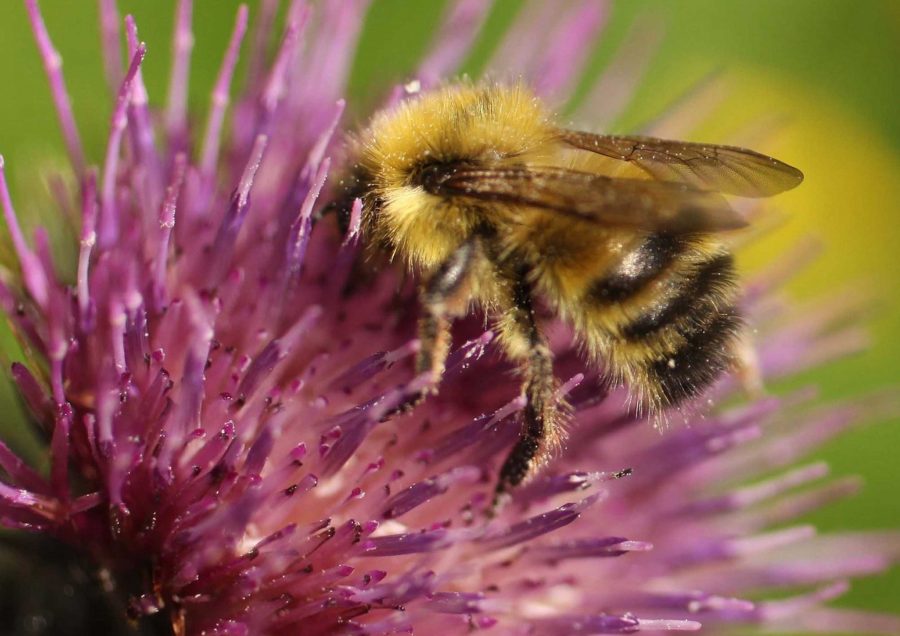New study shows honeybees like caffeine
Bees in this experiment remembered the scent of the caffeine they consumed over 24 hours before. They all stuck out their tongues for a caffeine reward, showing the researchers that they clearly remembered the scent. The caffeine changed how neutrons in the bee’s brain responded to tasks.
November 3, 2015
New research finds that not only humans can get addicted to caffeinated beverages. Studies show that bees prefer caffeinated nectar over non-caffeinated nectar.
Researchers from The University of Sussex tested the bees responses to two sucrose solutions. One had caffeine, the other did not.
The bees automatically went to the caffeinated solution and even directed their friends over that way as well. They also returned to the caffeinated solution more than once.
Researcher Roger Schurch said, “The honeybees are tricked into valuing the caffeinated forage as higher quality than it actually is.”
The full study is published in the Cell Press Journal Current Biology.
Other studies show that caffeine can improve a bee’s memory. Neuroscientist Geraldine Wright said, “Caffeine appears to have a secondary advantage, attracting honeybees and enhancing their long-term memory.”
So, caffeine does have more uses than just to wake up tired humans.







